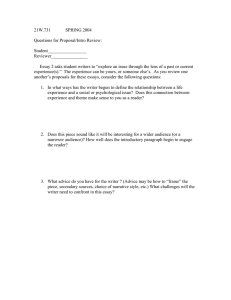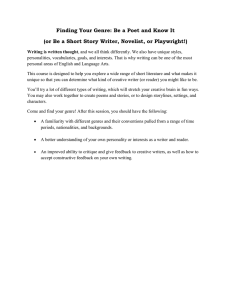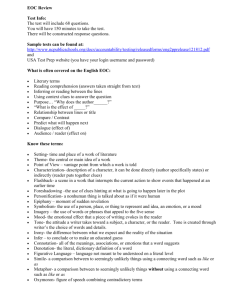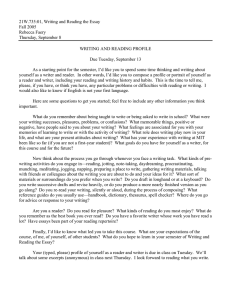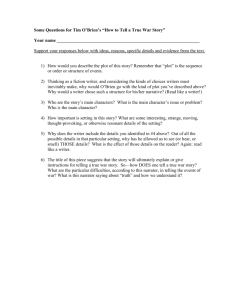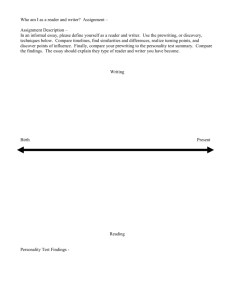ELEMENTS OF LITERATURE
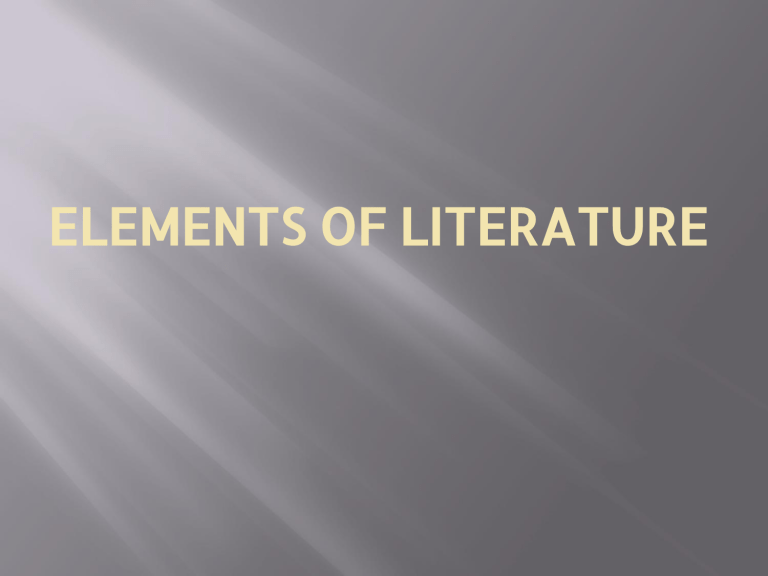
ELEMENTS OF LITERATURE
Allusion
⬜ An indirect reference to another literary work or to a famous person, place or event.
Audience
⬜ The person or persons who are intended to read a piece of writing. The intended audience of a work determines its form, style, tone and the details included.
Characterization
Refers to the techniques a writer uses to develop characters. There are four basic methods of characterization:
-physical description
-through the character’s own words, thoughts, actions and feelings
-through the actions, words, thoughts and feelings of other characters
-through the narrator’s own direct comments.
Conflict
⬜ A struggle between opposing forces.
External- pits a character against nature, society or another character.
Internal- a conflict between opposing forces within a character.
Diction
⬜ A writer’s or speaker’s choice of words.
Flashback
⬜ A break in the narrative to describe events that took place at an earlier time.
Foreshadow
⬜ A writer’s use of hints or clues to indicate events that will occur in a story.
Hyperbole
⬜ Exaggeration for a specific effect
⬜ Ex. The bag weighed a ton!
Imagery
⬜ The descriptive words and phrases that a writer uses to re-create sensory experiences.
Irony
⬜ Refers to a contrast between appearance and actuality.
Situational Irony-is a contrast between what is expected to happen and what actually happens.
Dramatic Irony-when a reader knows more than the characters do.
Verbal Irony-when someone states one thing, but means another.
Metaphor
⬜ Compares two things without using like or as.
Mood
⬜ The feeling or atmosphere that the writer creates for the reader.
Narrator
⬜ The character in a story who is telling the story
Oxymoron
⬜
⬜
Bringing together two contradictory terms
Ex. Jumbo Shrimp
Personification
⬜
⬜
Giving human qualities to nonhumans
Ex. The tree sings.
Plot
⬜ The plot is the sequence of actions and events in a literary work.
Point of View
⬜ The perspective from which the events in a story or novel are told.
⬜
⬜
1 st person – the narrator is a character in the work who tells everything in his or her own words and uses the pronouns I, me and my.
3 rd person-events are related by a voice outside the action and uses the pronouns he, she, they, etc.
Setting
⬜ The time and place in which the action occurs.
Simile
⬜ Compares two things using like or as.
Suspense
⬜ Created by having clues yet not knowing how things will turn out
Symbol
⬜ A concrete object that represents another idea
Theme
⬜ The central idea of the story, the message the author wants to convey to the reader
Tone
⬜ A writer’s attitude toward his or her subject.
Understatement
⬜
⬜
Something that is represented less than it is
Ex. Don’t worry, it is just a scratch, when is reality it is a huge dent.
